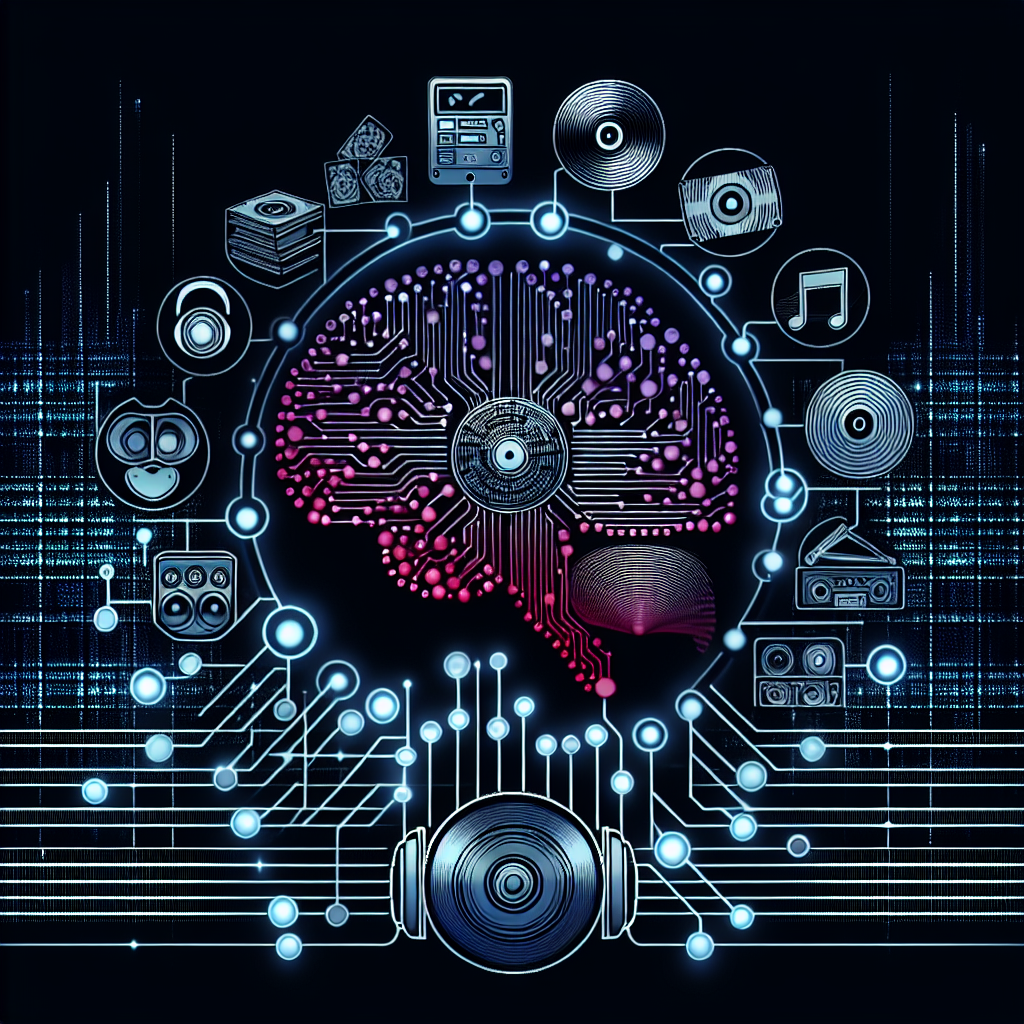AI and the Future of Music Distribution Models
In recent years, the music industry has seen a significant shift in the way music is distributed and consumed. With the rise of streaming services like Spotify, Apple Music, and Tidal, the traditional model of selling physical copies of albums has been largely replaced by a model in which music is streamed or downloaded over the internet. This shift has brought about new challenges and opportunities for musicians, record labels, and music fans alike. One of the most exciting developments in this new era of music distribution is the use of artificial intelligence (AI) to help artists connect with their fans and reach new audiences.
AI has the potential to revolutionize the way music is distributed and consumed. By analyzing vast amounts of data, AI can help artists understand their fans’ preferences and behaviors, allowing them to tailor their music and marketing strategies to better connect with their audience. AI can also help artists discover new trends and styles, enabling them to stay ahead of the curve and reach new audiences. In this article, we will explore the ways in which AI is shaping the future of music distribution models and the implications this has for the music industry as a whole.
AI-Powered Recommendation Engines
One of the most significant ways in which AI is changing the music distribution landscape is through the use of recommendation engines. These AI-powered algorithms analyze a user’s listening habits and preferences to recommend new music that they may enjoy. This personalized approach to music discovery has revolutionized the way we find and consume music, making it easier than ever to discover new artists and genres.
Streaming services like Spotify and Apple Music use AI-powered recommendation engines to suggest new music to their users based on their listening history. These algorithms take into account factors such as the user’s previous listening habits, the popularity of the artist or song, and other users’ preferences to generate personalized recommendations. This not only helps users discover new music that they may enjoy but also helps artists reach new audiences who may not have discovered their music otherwise.
AI in Music Production
AI is also being used to assist in the production of music itself. From generating drum beats to composing melodies, AI-powered tools are helping musicians streamline the creative process and experiment with new sounds and styles. For example, tools like Amper Music use AI algorithms to generate custom music tracks based on a user’s input, allowing artists to create professional-quality music without needing a full band or production team.
AI is also being used to analyze music trends and predict which songs are likely to be successful. By analyzing data from streaming services, social media, and other sources, AI algorithms can identify patterns and trends in music consumption, helping artists and record labels make more informed decisions about which songs to release and promote. This data-driven approach to music distribution can help artists reach larger audiences and increase their chances of success in an increasingly competitive industry.
AI and Marketing Strategies
In addition to assisting in music production and recommendation engines, AI is also being used to help artists develop more effective marketing strategies. By analyzing data on fan behavior and preferences, AI can help artists target their marketing efforts more effectively and reach the right audience with the right message. For example, AI algorithms can analyze social media data to identify fans who are most likely to engage with a particular artist’s music and tailor marketing campaigns to reach these fans.
AI can also help artists track the success of their marketing campaigns in real-time, allowing them to adjust their strategies as needed to maximize their impact. By analyzing data on how fans are interacting with their music and marketing materials, artists can gain valuable insights into what is working and what is not, enabling them to make more informed decisions about how to promote their music and connect with their audience.
FAQs
Q: How is AI changing the music industry?
A: AI is revolutionizing the music industry by helping artists connect with their fans, discover new trends, and streamline the creative process. AI-powered recommendation engines, music production tools, and marketing strategies are helping artists reach new audiences and stay ahead of the curve in an increasingly competitive industry.
Q: How can AI help musicians reach new audiences?
A: AI can help musicians reach new audiences by analyzing data on fan behavior and preferences to tailor their music and marketing strategies to better connect with their audience. AI-powered recommendation engines also help users discover new music that they may enjoy, helping artists reach new fans who may not have discovered their music otherwise.
Q: What are some examples of AI tools being used in the music industry?
A: Some examples of AI tools being used in the music industry include recommendation engines on streaming services like Spotify and Apple Music, music production tools like Amper Music, and data analytics tools that help artists track the success of their marketing campaigns. These tools are helping artists streamline the creative process, reach new audiences, and make more informed decisions about how to promote their music.
Q: What are the implications of AI for the future of music distribution models?
A: The implications of AI for the future of music distribution models are vast. AI-powered recommendation engines, music production tools, and marketing strategies are helping artists reach new audiences, discover new trends, and stay ahead of the curve in an increasingly competitive industry. By analyzing data on fan behavior and preferences, AI is helping artists connect with their fans in new and innovative ways, revolutionizing the music distribution landscape.

